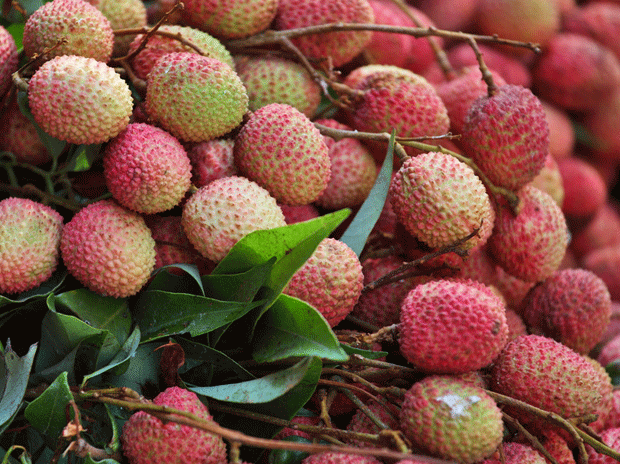"The crop, which was developing normally till March due to favourable weather conditions, has been damaged up to 20-25% in general due to inclement weather", said agriculture department officials. The only sliver-lining, according to them, was the crop in Muzaffarpur district was miraculously spared by the strong storm that lashed north Bihar region a couple of weeks back. The district's share of 25.2% of production easily dominates the scene. However, the farmers of the rest of lychee producing districts of the state were not the lucky and they took a huge loss due to unseasonal rains and hail storms.
Officials have indicated that 20-25% of the total crop was completely destroyed in strong storm, which brought wrath on the northern part of the state. "Almost 10,000 hectares of lychee and Mango crop was destroyed in the storm only," said a senior state government official, "and before that another 5,000-6,000 hectares under the crop was affected by the unseasonal rains and hail-storms. Farmers in Madhepura, Samastipur, Vaishali, Madhubani and other districts were most affected by the climatic event."
The state normally produces 2.5-3 lakh tonnes of lychee every year and it's the biggest producer of lychee in the country. In 2014-15, India produced 5.85 lakh tones lychee. With the wrath of weather gods, the state government estimates that this year's production will be anywhere between 2-2.25 lakh tonnes. However, the major concern is the quality of the produce. "The strong winds destroyed a big part of our orchard. Due to the storm, most of our fruits fell on the ground. This affects the quality as these fruits were not fully developed. In general, weight of each piece should be around 15-20 grams, whereas it's now between 12-14 grams," said Ram Babu Sharma, a lychee grower from Vaishali district.
The fruit is now struggling with another form of problem; pests. With highly fluctuating humidity, the remaining lychee fruits are also being attacked by fruit borer insects. "So far, almost 10% of orchards are under attack by the fruit borer. It can go up to 30%, if insecticides are not used properly. We are asking the orchard owners to step up the spray insecticides immediately," said officials.

)
